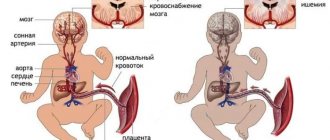What is Asperger's syndrome
Asperger's syndrome can be called "the mildest form of autism." This is a disorder that affects a person’s behavior, his perception of the world and the process of forming relationships with others. Asperger's syndrome is basically a "hidden dysfunction". This means that you cannot tell if someone has Asperger's syndrome based on their appearance. However, people with this disorder experience difficulties in three main areas, often called the “triad of impairments”:
- social communication
- social interaction
- social imagination
Why did Greta become concerned about environmental problems?
Greta Thunberg was born in 2003 in Stockholm (Sweden). Her parents are famous people. Mom is opera singer Malena Ernman (in 2009 she participated in Eurovision), dad is actor Svante Thunberg.
From childhood, the girl was different from her peers. When Greta was 11 years old, she and her classmates were shown a documentary about environmental issues as part of their school curriculum. The film featured "trash islands" floating in the Pacific Ocean. The Swedish girl's classmates watched it, discussed it and forgot. But what she saw made a strong impression on Greta’s psyche. She fell into real depression and became seriously concerned about the future fate of the planet.
Since then, she began to take an active interest in environmental issues. After some time, the child voluntarily gave up eating meat. Following his example, other family members also gradually became vegetarians. Currently, Greta is 16 years old, and she is still passionate about protecting the world from environmental disaster.
Asperger syndrome: signs in adults and children
People with Asperger's syndrome have difficulty interpreting signs such as intonation, facial expressions, and gestures that most people take for granted. This means they have a harder time communicating and interacting with other people. Which causes a person with Asperger's syndrome anxiety, worry and great confusion.
At the same time, unlike “classical autism,” people with Asperger syndrome do not have such pronounced speech problems, and often they have average or above average intelligence. They are capable of learning, although they may have some difficulties in this. They may have dyslexia, apraxia (dyspraxia), attention deficit hyperactivity disorder (ADHD), and epilepsy.
Symptoms may be expressed differently in different people and occur to varying degrees. With the right support and stimulation, people with Asperger's syndrome can lead full and independent lives.
Diagnostics
Diagnosing Asperger's syndrome is difficult. Patients are examined by psychiatrists; the participation of a neurologist, or less often an endocrinologist, is also required. It is important to begin by distinguishing a purely mental deviation from a symptom of organic brain damage. Basic measures are carried out: MRI to visualize cerebral structures, electroencephalography to assess the electrical activity of the brain. X-ray of the skull and CT scan of the brain are possible.
In the absence of structural changes, it makes sense to diagnose mental disorders themselves. This will take more than one month. No one can make a diagnosis right away; observation is needed. In childhood, although there are symptoms, they are often attributed to character traits and maturation processes. It is impossible to determine Asperger's syndrome at this stage, one can only suspect it. Therefore, most cases remain undetected.
Everything becomes clear during school years, adolescence, and even more so in adulthood. However, few people, after the end of childhood, turn to a psychiatrist with complaints about communication problems. Therefore, most likely, there are many more patients than expected and described in statistical data.
To detect the disease, a complete psychopathological examination is carried out:
- Oral survey. Based on the nature of speech, features of gestures, and non-verbal aspects, features can be determined already at the initial appointment.
- Anamnesis collection. What was the pain and when? It is also important to ask about typical interests and ask simple questions that do not require one specific answer. This will allow you to assess the nature of intellectual activity, characteristics of interests, their depth, and abilities for analytical and abstract thinking.
- Asperger syndrome test. Standard questionnaire. It is not sufficiently informative and is used as part of auxiliary activities.
It is important to observe the patient in natural and familiar conditions. This will allow you to draw conclusions about behavioral reactions. Therefore, hospitalization in a hospital is not recommended. Dynamic observation and research at different points in time is important. The task is routine. It will take a long time to identify Asperger's syndrome.
Differential diagnosis is carried out with schizotypal disorder (in which problems with thinking are observed), schizoid accentuation (the line is very thin), and social phobia.
Strengths of people with Asperger's syndrome
- IQ level is medium to high.
- Good verbal skills; rich vocabulary.
- Ability to perceive and remember large amounts of information, especially on a topic of special interest.
- Ability to think in visual images.
- Independent, self-directed learning.
- Tendency to think outside the box and find innovative approaches.
- Some have outstanding abilities and knowledge in specific areas.
- Ability to do things alone.
- Interest in little-researched or non-standard areas of knowledge.
- The ability to concentrate for long periods of time while reading, writing, and conducting experiments.
- The ability to notice small details in an idea, theory, number series, object, visual image, book, film.
- Ability to perform repetitive tasks that require precision, accuracy, and order.
- Serious approach to work; commitment to quality and precision work.
- The ability and tendency to tell the truth. Even if it is impolite or not in your personal interest.
- The need for rules and their observance.
- Tendency to sympathize with animals and protect them.
In addition, people with Asperger's syndrome often work hard to acquire social skills that are not acquired naturally. They are persistent and do not accept failure, taking other people's imperfections for granted.
Symptoms
They start early in life. If you're the mom or dad of a child who has it, you may notice that he can't make eye contact. You may also find that your child seems awkward in social situations and doesn't know what to say or how to respond when someone speaks to them.
He may miss social cues that are obvious to other people, such as body language or facial expressions. For example, he may not realize that when someone crosses their arms and frowns, they are angry.
Another sign is that your child may show little emotion. He may not smile when he is happy or laugh at a joke. Or he may speak in a flat, robotic way.
If your child has the condition, he may talk about himself most of the time and focus on one topic, such as rocks or football statistics. And he could repeat himself many times, especially on a topic that interests him. He might as well do the same movements over and over again.
He may also not like change. For example, he may eat the same food for breakfast every day or have difficulty moving from one class to another during the school day.
Anxiety
Anxiety is often a normal part of life for people with autism. We discussed earlier that women with autism are at greater risk of being diagnosed with an anxiety disorder instead of ASD (rather than with ASD), so we can conclude that anxiety symptoms are more common in women than in men. Anxiety was mentioned specifically by 50% of the women I interviewed, and it is also mentioned very often in books written by women with autism.
“Anxiety for me is a chronic, everyday problem that gets significantly worse in stressful environments, such as work and intense social situations. Since I often experience regression in stressful situations (or something like hysteria begins), I also have something like a phobia of not being able to cope with this or that situation.”
“I find it very difficult to plan because when I plan something, I think I can do it, and then the day comes and I just can’t handle it. Because of this, I often let other people down and cancel things.”
Women with autism experience anxiety because they live in a world that is endlessly confusing, illogical and frustrating, full of inconsistency and disruption to routine. This is likely reinforced by gendered expectations of them that they are unable to live up to. The result is avoidance of certain situations, as well as a general feeling of anxiety that can take hold at any moment. The following are examples of situations that are particularly stressful for women with autism.
“I have to avoid situations that often contribute to my anxiety. I feel especially anxious when I'm alone in a crowd or where there are a lot of people, or when I need to negotiate something. I usually need some kind of guidance, preparation or feedback to help me cope and understand these situations, as anxiety causes me to lose my ability to process information in real time.”
“Relationships, misunderstandings of relationships or misunderstandings, and all the anxiety that comes with it. Failure is a real disaster."
“Socializing, meeting new people, events in the evening, parties, talking to strangers without drinking, walking around London in the evening, visiting new places, birthday parties.”
“When I suddenly meet people I know but are not close to me on a bus, at a bus stop, in a cafe, and so on. This is very stressful for me and I can't think of anything to say. It’s easier for me to talk to someone I don’t know at all.”
Depression
Depression was mentioned by approximately 50% of the women I interviewed, and my experience suggests that in reality this figure should be even higher in this group. Feelings that you are “different” and that you live in an unfair world, but have no way to make things right, are so common among people with autism that many of them don’t even call it “depression” - it’s just "life". Many women with autism I have worked with describe themselves as being “constantly depressed,” where their low mood is simply a consequence of a lack of social acceptance and daily challenges. They find it difficult to separate their depression from their autism.
Difficulty recognizing one's own emotional reactions (alexithymia) and the inability to distinguish them from physical sensations means that women with autism may not know what they are feeling, or they may not be able to express it in words. I also wonder (partially from personal experience) whether living constantly with low mood and high stress levels may lead to people simply not knowing what a “normal” emotional state is.
“Depression since mid-teens. I feel like it's limiting my efforts to improve my life. … It’s hard to separate the effects of depression from Asperger’s syndrome—I think it’s a combination of both that isolated me for decades.”
“I believe that my depression is often triggered by an increase in anxiety, maybe the efforts aimed at muffling anxiety lead to the fact that I stop worrying about my life in general. I often get stuck on issues that bother me when I try to understand and solve my problems. However, often my inability to stop thinking about these issues increases my depression.”
“I guess I never gave up hope that things would get better, even if it took a lot of effort, and I know that this is different from the classic description of depression. I feel like my depression is different from how neurotypical people describe it.”
Some women said antidepressants helped them improve their mood, but others learned strategies that allowed them to live with depression as a part of their lives. Women's belief in professional help was very low - most believed that mental health professionals who knew little or nothing about autism would simply not be able to understand them. Women who sought professional help usually suffered from the most severe cases of depression, and seeking help was a last resort for them.
“It was important for me to learn to recognize when I was depressed because it develops gradually and can go unnoticed for weeks and months. Once I realize that I'm depressed, what helps me is to say stop and nurse myself for a couple of days where I rest and eat as much as I can, stop all normal activities, and then make a plan of action to get back to a healthy lifestyle and healthy nutrition (but in a very gentle manner!).”
“I don’t need to be pestered, I need to be in silence, without anyone explaining to me that I have no reason to be depressed and I just need to “pull myself together.” I tend to avoid other people in this state, as their reactions usually do not help. I know how to get through this and I better do it on my own.”
Self harm
People self-harm in different ways and for different reasons. Earlier in the section on sensory features, we already mentioned picking and scratching the skin, tearing out and sorting through hair. How people describe this behavior is highly individual, but sometimes the line between seeking sensory reassurance and self-harm is a fine one. Mothers of girls with autism report self-harm as their biggest worry. From what I can tell, girls and women with autism self-harm to feel (physical) pain when they experience too much emotion. Liane Holliday Willey describes how she "teared" her skin to reconnect with her body, but she warns that other people will assume you are harming yourself rather than trying (to some extent) to heal yourself.
As a teenager, I cut myself a lot. My weapon of choice was a safety pin. I ran the sharp end over the skin on my arms until it bled, and then continued doing so. I also carved the boys' names and initials into my arms. I can still see faint scars on myself. I was talking about this at a conference for women with autism, and then a woman came up to me and asked to see my scars. I showed them, and she showed me hers - almost invisible names on her hands, in the same places as mine. We both laughed. Even in our darkest moments, we were able to find connection and understanding without judgment from someone who had gone through the same thing.
At the time, I had no idea why I was doing this. I didn't know anything about autism. I knew that I had unbearable physical sensations that were accumulating inside my body like a volcano with no way out. I couldn't put my feelings into words; to put it simply, I had no idea what to do with them. I couldn't talk about my feelings, I didn't have words for them. This is called "alexithymia". The wounds on my skin and channeling the feelings into physical pain somehow shifted my attention to something real and tangible, and this allowed those feelings to dissolve. This brought me relief and peace. I'm over 40 now and when I feel overwhelmed I still have the urge to cut myself. My ability to verbalize and bear strong emotions is no better than when I was 15, but I now better understand the consequences of such behavior for myself and those around me. My partner and my family will be very worried, and if my employers find out, they will be hesitant to hire me. This will become visible evidence that I am incapable of being “normal”, and it will be much harder for others to ignore. For some, substance abuse, primarily alcohol, can be a way to block too strong feelings. Unfortunately, there is virtually no research on chemical dependency among people with autism. However, there is evidence of a connection between alcoholism and social anxiety - 65% of patients in alcoholism treatment centers are diagnosed with social anxiety disorder.
Meditation, self-awareness and, of course, an ASD diagnosis can help girls and women better understand why they feel the way they do and how they can cope with those feelings without harming themselves. You cannot simply tell a woman to stop self-harming without providing support for the reasons for her behavior - such attempts will be unsuccessful and will only make her feel guilty that she was “found out” and that she could not cope with stress.











